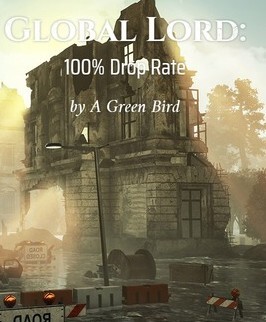Chapter 309: ask for refund
Latest website: On October 13, Ireland became the second euro zone country to apply for aid from the EU after the outbreak of the sovereign debt crisis.
The EU seems to have forgotten what they once said, "Greece is just an exception, and there will be no such assistance to euro area countries in the future", and urgently approved a total of 85 billion euros of aid to love.
Affected by this, Europe was once again shrouded in the shadow of the crisis, and the euro fell to 1.1712 against the dollar, which was close to the previous low of 1.1641 in November 2005.
On this day's news, in addition to the recent developments in the European debt crisis, the republic of Atlanta has taken over the government and has asked the people of the former Republic of Palu and their mutual funds to return part or all of the acquisition money. .
The reason is that in the course of their geological research on the island of Atlanta, formerly known as Palu, they discovered anomalies.
Then Atlanta took over the government and invited experts from the United States, Japan, and China, who are currently the world's best in earthquake research, to conduct detection and research on Atlanta Island again. Geological activities and related data are indeed suspicious, and the possibility of major geological disasters in the near future is relatively high.
It is worth mentioning that Chinese experts accidentally discovered the emergence of submarine bubbles in the waters near Atlanta Island. The specific reason is still unclear, but they put forward the possibility of earthquakes in response to the opinions of Japanese experts. , does not rule out the possibility of submarine volcanic eruptions.
Therefore, in response to these conclusions, the Atlan takeover government believes that there is a great possibility of major geological disasters occurring in Atlan Island or its surrounding areas in the near future. A supplementary agreement, in the event of a disaster, the other party will refund some or even all of their requirements for purchasing the Republic of Palu funds.
In response to Atlanta's request to take over the government's return of some or even all of the "national" funds, Palu strongly stated that this is a sign of no credit at all, and the reason for the so-called geological disasters of Atlanta is simply groundless. It is speculated that they hope that before learning how to govern the country, they should enhance their own sense of responsibility and international credibility, and respect the agreements that have been signed under the notarization of many international parties.
In this regard, as the official of the Palu side at this time, the Australian side also came forward, saying that the Palu people will protect their due rights under their own governance, so they will follow up on this matter, hoping that the two sides can negotiate amicably, and also Ask Atlanta to take over the government and abide by the agreement.
This is obviously on the side of Palu. After all, the funds that Palu got are already domestic funds from Australia at this time. At this time, they were damaged by the subprime mortgage crisis and faced the impact of the European debt crisis. They also need as much as possible. funds to maintain domestic economic vitality.
In addition, international parties have expressed concern about this matter. If it is indeed as Atlanta said, then it seems reasonable for them to ask Palu to return some of the funds. After all, the island will be damaged by geological disasters shortly after it was purchased. It is difficult to say whether Palu has anything. information.
But the key point is that the experts invited by the takeover government of the Republic of Atlanta could not give a positive statement about the prediction of geological disasters.
This is also normal. Even now with the rapid development of human technology, it is still extremely difficult to predict disasters such as earthquakes and volcanic eruptions. Among the similar disasters that have occurred so far, whether it is an earthquake or a volcanic eruption involving the sea area , very few can really make accurate predictions.
It has to be said that in the study of earthquakes, Japan, which is a region with frequent crustal activities and frequent earthquakes, has a relatively advanced level of research by relevant experts there in the world.
There are several methods for predicting earthquakes, most of which were first proposed by scientists in Japan.
These methods include:
The first is the RTM method. This is a seismic activity evaluation algorithm developed by Professor Nagao Niangyou of the Earthquake Prediction Research Center, Tokai University, Japan. In this method, R is the area, T is the time, and M is the magnitude of the earthquake. A certain formula is used to calculate the possible occurrence of the earthquake.
The principle of this method is that there is a fixed pattern of motion between the tectonic plates, and small random earthquakes are releasing the destructive energy generated by the movement of the plates. On the eve of a major earthquake, there is often a certain period of time when the seismic activity decreases and becomes "abnormally quiet", indicating that the energy is accumulating, which is called the seismogenic period. trick".
The RTM algorithm uses a formula to calculate whether the seismic activity in a certain area has decreased to determine whether the area has entered a seismogenic period. Once the "abnormally quiet" period ends, it may mean that a major earthquake is about to occur.
The second is the TEC anomaly in the ionosphere before the earthquake. When the Great Hanshin Earthquake occurred in Japan in 1995, an ionospheric anomaly appeared 80 kilometers above the epicenter. A geophysics professor at Hokkaido University used radio waves transmitted by GPS satellites to detect changes in electron density in the ionosphere. He found that 40 minutes before the earthquake, the electron density in the ionosphere above the epicenter increased by about 10% compared to the surrounding area.
Although the principle of this is unknown, it is hoped that this method can be used to predict large earthquakes, but this method is still being perfected.
The third is the abnormal concentration of radon in the atmosphere. The principle is that before the earthquake, the interior of the crust was under pressure, causing partial damage to the crust, but at this time, the "radon" trapped in the crust was released into the atmosphere and groundwater
Radon is produced by the radioactive decay of radium contained in rocks and is present in the earth's crust. Part of the radon produced is dissolved in groundwater, and part of it accumulates in the voids of the earth's crust, released into the air, and diffused into the atmosphere.
Radon concentrations in the atmosphere and groundwater may fluctuate due to crustal movement and volcanic activity, so some experts in Japan have also been studying changes in radon concentrations to predict earthquakes.
These three methods are all commonly used by Japanese experts to predict earthquakes, but the first method is generally an "abnormally quiet" period one year before a major earthquake, so long-term observations are needed to compare data.
The second method, again, can only be predicted within an hour before the earthquake erupts.
Therefore, this time, Japanese experts mainly made the determination through the third method, because through their research, the concentration of radon in the air will rise significantly starting one month before the earthquake.
Of course, this is not the only method. Chen William has recruited geological experts to conduct data exploration on the entire island of Atlanta since September. Therefore, there are still more data retained, also because he has been prepared for this. , and can be dealt with in preparation for large-scale construction.
Therefore, by comparison, compared with the data of other areas of the same latitude and the same longitude, the contrast intensity of the address activity in the Atlanta area can be seen to be "quiet". Moreover, the detected radon concentration in the surrounding area also tends to be high. Based on these, they speculate that there is a possibility of an earthquake here.
But it is not so sure After all, relatively speaking, the data here is still too small, and even in Japan, which has accumulated data all the year round, the prediction of earthquakes is not so accurate. The difficulty of detection of local motion lies.
As for volcanic eruptions, if it is a volcano above the ground, it can also be observed by installing detectors for a long time. Before a volcanic eruption, there are often obvious detectable signals, such as gas emissions, surface water temperature rise or surface water temperature rise. Slow expansion, which can be monitored by satellite data.
However, if it involves submarine volcanoes, it is difficult to monitor the above data. This time, it is only a speculation made by experts from China through an accidental discovery of the emergence of seabed bubbles. As for whether there will really be a submarine volcanic eruption , even they themselves dare not be too sure.
Therefore, under the combination of these circumstances, the speculation about the possible occurrence of geological disasters made by Atlanta does not seem to be so tenable, and it is no wonder that most of the relevant parties are skeptical.
Even Atlanta's request to return some of the funds from Palu was the result of Chen William's push behind it, otherwise Erica would not have the confidence to really ask for a refund if she got such a guess. .
The EU seems to have forgotten what they once said, "Greece is just an exception, and there will be no such assistance to euro area countries in the future", and urgently approved a total of 85 billion euros of aid to love.
Affected by this, Europe was once again shrouded in the shadow of the crisis, and the euro fell to 1.1712 against the dollar, which was close to the previous low of 1.1641 in November 2005.
On this day's news, in addition to the recent developments in the European debt crisis, the republic of Atlanta has taken over the government and has asked the people of the former Republic of Palu and their mutual funds to return part or all of the acquisition money. .
The reason is that in the course of their geological research on the island of Atlanta, formerly known as Palu, they discovered anomalies.
Then Atlanta took over the government and invited experts from the United States, Japan, and China, who are currently the world's best in earthquake research, to conduct detection and research on Atlanta Island again. Geological activities and related data are indeed suspicious, and the possibility of major geological disasters in the near future is relatively high.
It is worth mentioning that Chinese experts accidentally discovered the emergence of submarine bubbles in the waters near Atlanta Island. The specific reason is still unclear, but they put forward the possibility of earthquakes in response to the opinions of Japanese experts. , does not rule out the possibility of submarine volcanic eruptions.
Therefore, in response to these conclusions, the Atlan takeover government believes that there is a great possibility of major geological disasters occurring in Atlan Island or its surrounding areas in the near future. A supplementary agreement, in the event of a disaster, the other party will refund some or even all of their requirements for purchasing the Republic of Palu funds.
In response to Atlanta's request to take over the government's return of some or even all of the "national" funds, Palu strongly stated that this is a sign of no credit at all, and the reason for the so-called geological disasters of Atlanta is simply groundless. It is speculated that they hope that before learning how to govern the country, they should enhance their own sense of responsibility and international credibility, and respect the agreements that have been signed under the notarization of many international parties.
In this regard, as the official of the Palu side at this time, the Australian side also came forward, saying that the Palu people will protect their due rights under their own governance, so they will follow up on this matter, hoping that the two sides can negotiate amicably, and also Ask Atlanta to take over the government and abide by the agreement.
This is obviously on the side of Palu. After all, the funds that Palu got are already domestic funds from Australia at this time. At this time, they were damaged by the subprime mortgage crisis and faced the impact of the European debt crisis. They also need as much as possible. funds to maintain domestic economic vitality.
In addition, international parties have expressed concern about this matter. If it is indeed as Atlanta said, then it seems reasonable for them to ask Palu to return some of the funds. After all, the island will be damaged by geological disasters shortly after it was purchased. It is difficult to say whether Palu has anything. information.
But the key point is that the experts invited by the takeover government of the Republic of Atlanta could not give a positive statement about the prediction of geological disasters.
This is also normal. Even now with the rapid development of human technology, it is still extremely difficult to predict disasters such as earthquakes and volcanic eruptions. Among the similar disasters that have occurred so far, whether it is an earthquake or a volcanic eruption involving the sea area , very few can really make accurate predictions.
It has to be said that in the study of earthquakes, Japan, which is a region with frequent crustal activities and frequent earthquakes, has a relatively advanced level of research by relevant experts there in the world.
There are several methods for predicting earthquakes, most of which were first proposed by scientists in Japan.
These methods include:
The first is the RTM method. This is a seismic activity evaluation algorithm developed by Professor Nagao Niangyou of the Earthquake Prediction Research Center, Tokai University, Japan. In this method, R is the area, T is the time, and M is the magnitude of the earthquake. A certain formula is used to calculate the possible occurrence of the earthquake.
The principle of this method is that there is a fixed pattern of motion between the tectonic plates, and small random earthquakes are releasing the destructive energy generated by the movement of the plates. On the eve of a major earthquake, there is often a certain period of time when the seismic activity decreases and becomes "abnormally quiet", indicating that the energy is accumulating, which is called the seismogenic period. trick".
The RTM algorithm uses a formula to calculate whether the seismic activity in a certain area has decreased to determine whether the area has entered a seismogenic period. Once the "abnormally quiet" period ends, it may mean that a major earthquake is about to occur.
The second is the TEC anomaly in the ionosphere before the earthquake. When the Great Hanshin Earthquake occurred in Japan in 1995, an ionospheric anomaly appeared 80 kilometers above the epicenter. A geophysics professor at Hokkaido University used radio waves transmitted by GPS satellites to detect changes in electron density in the ionosphere. He found that 40 minutes before the earthquake, the electron density in the ionosphere above the epicenter increased by about 10% compared to the surrounding area.
Although the principle of this is unknown, it is hoped that this method can be used to predict large earthquakes, but this method is still being perfected.
The third is the abnormal concentration of radon in the atmosphere. The principle is that before the earthquake, the interior of the crust was under pressure, causing partial damage to the crust, but at this time, the "radon" trapped in the crust was released into the atmosphere and groundwater
Radon is produced by the radioactive decay of radium contained in rocks and is present in the earth's crust. Part of the radon produced is dissolved in groundwater, and part of it accumulates in the voids of the earth's crust, released into the air, and diffused into the atmosphere.
Radon concentrations in the atmosphere and groundwater may fluctuate due to crustal movement and volcanic activity, so some experts in Japan have also been studying changes in radon concentrations to predict earthquakes.
These three methods are all commonly used by Japanese experts to predict earthquakes, but the first method is generally an "abnormally quiet" period one year before a major earthquake, so long-term observations are needed to compare data.
The second method, again, can only be predicted within an hour before the earthquake erupts.
Therefore, this time, Japanese experts mainly made the determination through the third method, because through their research, the concentration of radon in the air will rise significantly starting one month before the earthquake.
Of course, this is not the only method. Chen William has recruited geological experts to conduct data exploration on the entire island of Atlanta since September. Therefore, there are still more data retained, also because he has been prepared for this. , and can be dealt with in preparation for large-scale construction.
Therefore, by comparison, compared with the data of other areas of the same latitude and the same longitude, the contrast intensity of the address activity in the Atlanta area can be seen to be "quiet". Moreover, the detected radon concentration in the surrounding area also tends to be high. Based on these, they speculate that there is a possibility of an earthquake here.
But it is not so sure After all, relatively speaking, the data here is still too small, and even in Japan, which has accumulated data all the year round, the prediction of earthquakes is not so accurate. The difficulty of detection of local motion lies.
As for volcanic eruptions, if it is a volcano above the ground, it can also be observed by installing detectors for a long time. Before a volcanic eruption, there are often obvious detectable signals, such as gas emissions, surface water temperature rise or surface water temperature rise. Slow expansion, which can be monitored by satellite data.
However, if it involves submarine volcanoes, it is difficult to monitor the above data. This time, it is only a speculation made by experts from China through an accidental discovery of the emergence of seabed bubbles. As for whether there will really be a submarine volcanic eruption , even they themselves dare not be too sure.
Therefore, under the combination of these circumstances, the speculation about the possible occurrence of geological disasters made by Atlanta does not seem to be so tenable, and it is no wonder that most of the relevant parties are skeptical.
Even Atlanta's request to return some of the funds from Palu was the result of Chen William's push behind it, otherwise Erica would not have the confidence to really ask for a refund if she got such a guess. .







